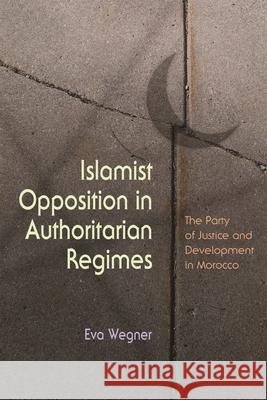Islamist Opposition in Authoritarian Regimes: The Party of Justice and Development in Morocco » książka
Islamist Opposition in Authoritarian Regimes: The Party of Justice and Development in Morocco
ISBN-13: 9780815632825 / Angielski / Twarda / 2011 / 208 str.
What electoral mobilization choices do Islamist opposition parties make? How do they relate to authoritarian incumbents? Which key factors influence the choices these parties make? Islamist Opposition in Authoritarian Regimes explores the answers to these questions by studying the path of the Islamist Party of Justice and Development (PJD) in Morocco from 1992 to 2007.
Wegner traces the party s choices through an analysis of organizational, ideological, and institutional constraints. Adopting a simple but novel perspective, Wegner distinguishes Islamist parties from other opposition parties because of their connection to a powerful social movement. The author shows how the PJD initially made major progress in electoral politics by building up a strong party organization, sustaining full support of the Islamist movement, and positioning itself as the only credible opposition party. Ultimately, the failure of the PJD to win elections was due to political concessions it made to secure its legality combined with a distancing from the Islamist movement.
Based on extensive field research in Morocco in 2003 and 2007 and drawing upon personal interviews with members, candidates, and leaders of the PJD, Islamist Opposition in Authoritarian Regimes presents a meticulous and enlightening case study. Wegner enriches our understanding of electoral authoritarianism in Morocco and throughout the Arab- Islamic world."











